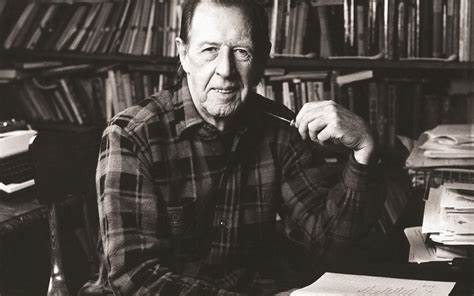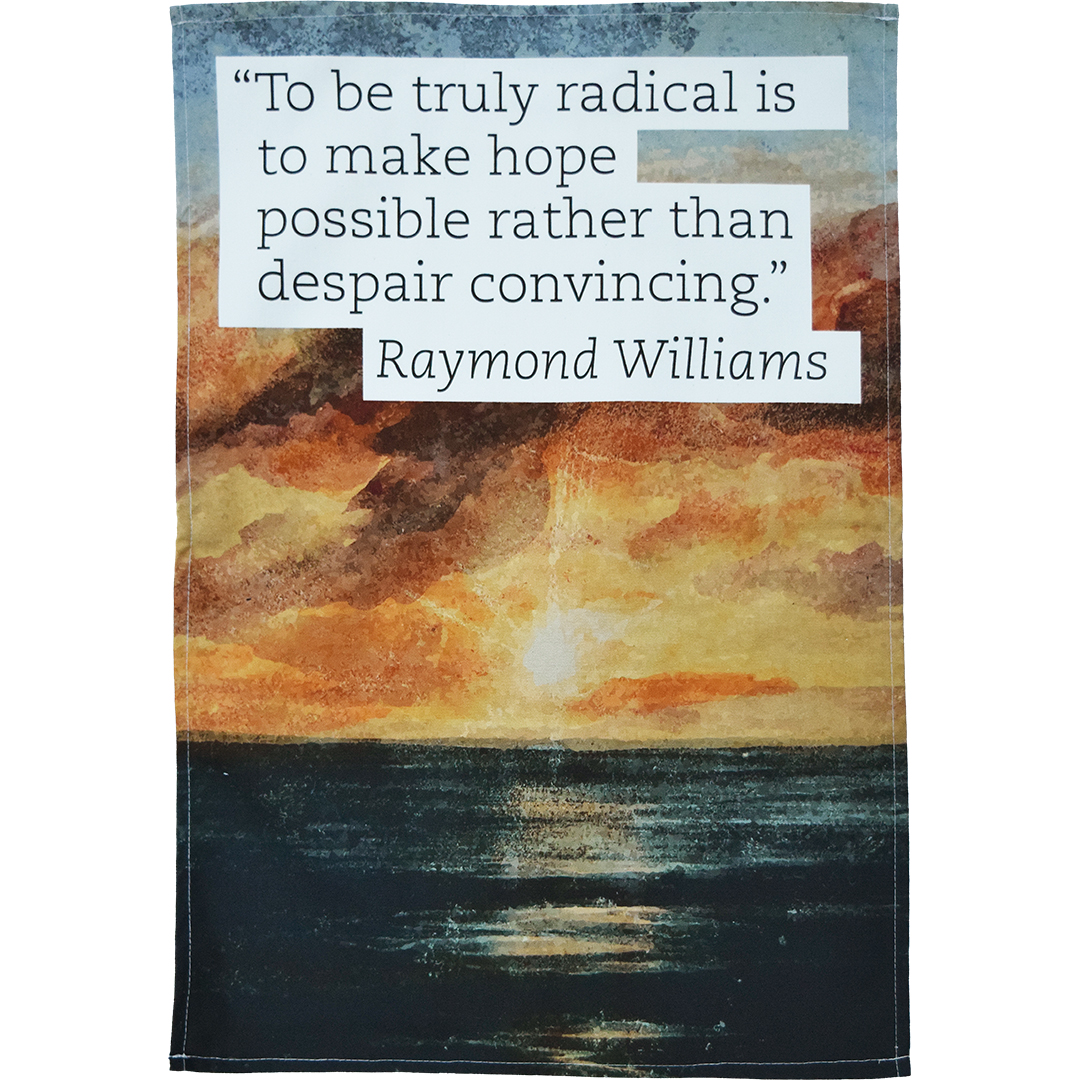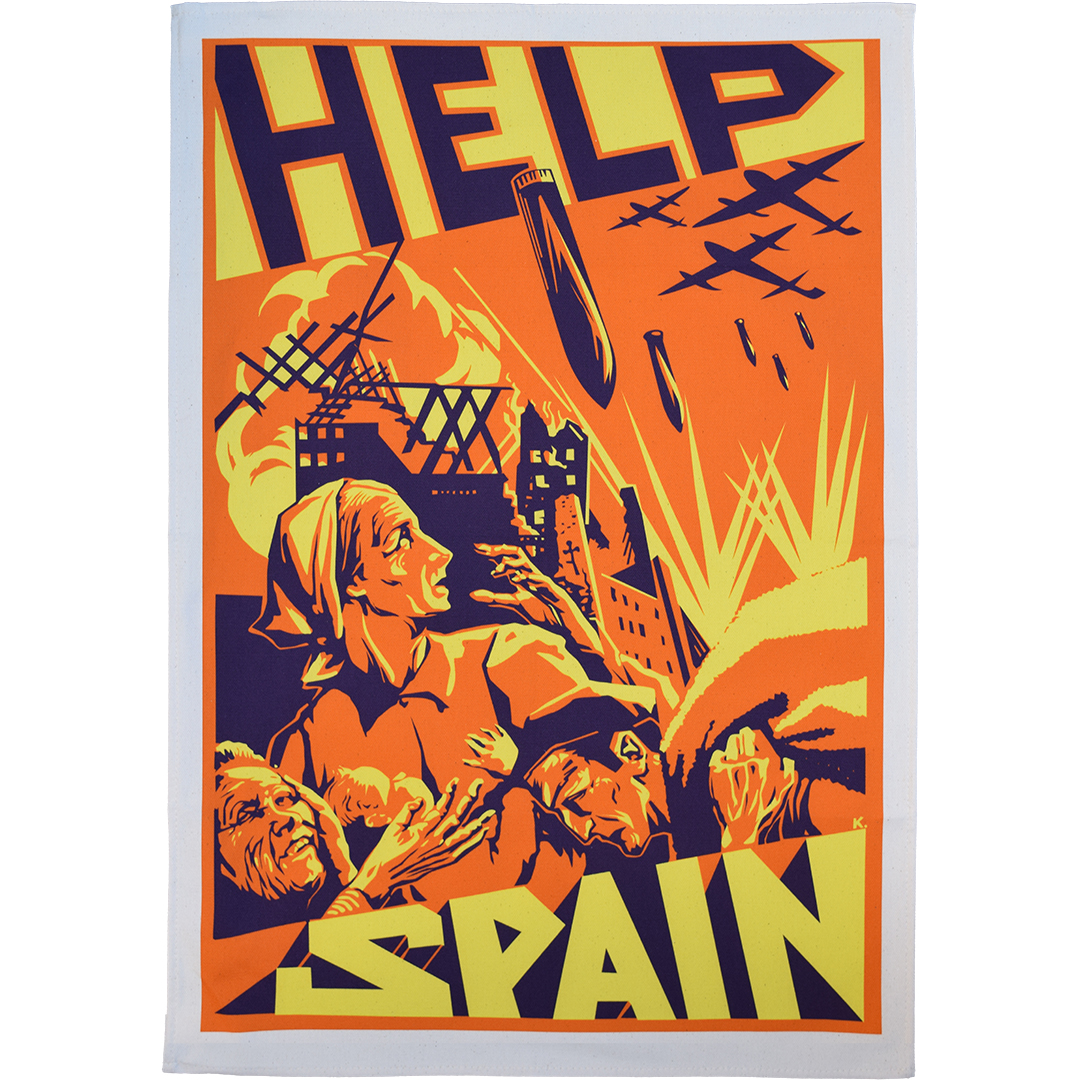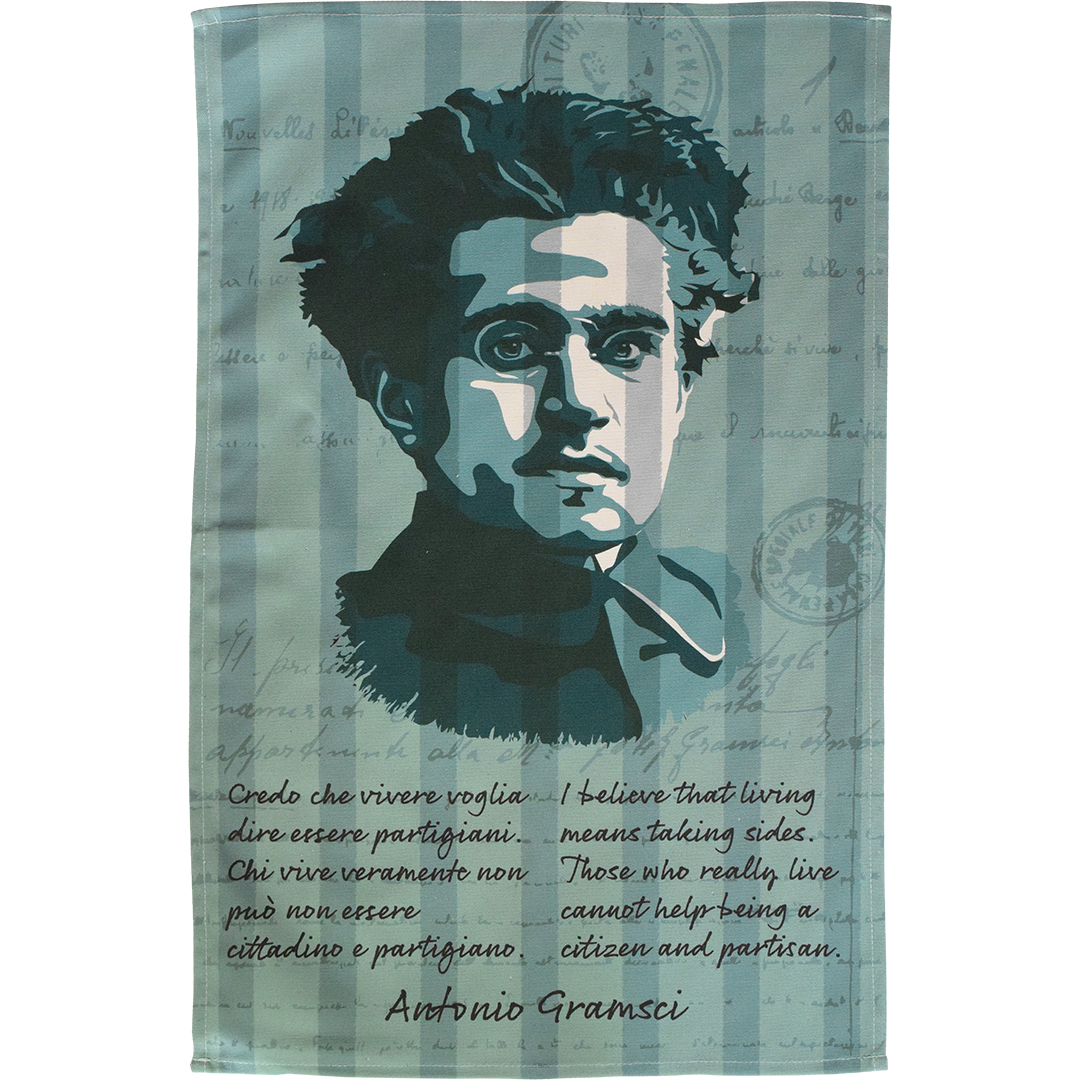To Make Hope Possible: The Life of Raymond Williams
Posted by Pete on 31st Aug 2023

Born on this day in 1921, Raymond Williams became one of the leading Marxist theorists of the twentieth century - and helped to inspire the Radical Tea Towel Company!
“Culture is ordinary: that is where we must start.”
Raymond Williams helped us to understand that culture, intelligence and creativity are not the monopoly of snobs and aristocrats. Working-class communities are places of creativity, too.
And Williams knew this about the working class because he belonged to it.
Williams was born in the Welsh hamlet of Pandy, just down the road from the Radical Tea Towel Company in Abergavenny!
Click to view our Raymond Williams tea towel
Before he went to Cambridge to become a radical theorist of culture and society, Williams lived in Pandy, a small village near Abergavenny in Wales.
His dad worked on the railways and was a local
Labour Party activist. Before that, the family had been farmhands.
Every day growing up, Williams witnessed first-hand the cultural side of working-class life: the fact that workers weren’t just workers, but also writers, readers, painters, singers and so on.
Williams, who was born in 1921, also saw – and participated in – the political radicalisation of organised labour during the 1930s.
As a teenager, Williams supported the Spanish Republicans in their fight against Franco's fascists
Click to view our Help Spain tea towel
Amid the intense struggle against fascism in Europe, the teenage Williams learned about and sent aid to Republican Spain.
He also advocated for the maintenance of international peace, supporting the League of Nations and trying to push the Labour Party to take the same stance.
In 1939, Williams received a state scholarship to study English at Cambridge University.
Whilst there, now in a much less working-class milieu, Williams became even more radical.
He joined the Communist Party of Great Britain in 1939, and then enlisted in the British Army to fight the Nazis in late 1940.
He'd been an anti-war campaigner throughout his teenage years, but the threat of fascism in Europe was enough to make him join up and fight.
Williams served as a tank commander during the Allied invasion of Normandy. He fought in the liberation of Belgium and the Netherlands, before marching on to Hamburg at the end of the war.
Back home in peacetime, Williams resumed his education at Cambridge, graduating with a BA in 1946.
He spent the next fifteen years writing and working as a tutor in adult education.
Despite his time at Cambridge surrounded by the wealthy elite, he was still a radical through and through.
The Italian Marxist Antonio Gramsci had a huge influence on Williams, particularly his ideas of how culture is used by the ruling classes to maintain power
Click to view our Antonio Gramsci tea towel
In 1951, as an army reservist, he was called up to fight in the Korean War. But this time Williams refused.
He’d fought in the Second World War to resist fascism, but he saw the U.S.-led war in Korea as one of self-interest and power politics.
Having gained some traction as an academic writer and cultural theorist during the 1950s, Williams moved back to Cambridge in 1961 to teach English Literature, elected as a fellow at Jesus College.
It was around then that he first officially joined the Labour Party, but his membership would only be brief: he quit in 1966 when Harold Wilson’s Labour government repressed the seafarers’ strike and made harsh cuts to public spending.
Socialism and solidarity – rather than party-political affiliation – were always the real priorities for Williams.
He also supported the popular protest movement against the U.S. invasion of Vietnam during the 1960s and 1970s, participating in the
Vietnam Solidarity Campaign in Britain, which was important in keeping Britain out of that war.
In tandem with all of this activism, Williams continued developing his thinking about culture, and working-class culture specifically.
Heavily influenced by the work of
Marx and Antonio Gramsci, Williams recognised the creative energy and potential of the working class. And he worked closely with fellow radical scholars of the 1960s and 1970s, such as E. P. Thompson and Stuart Hall.
By the time Raymond Williams died in 1988, he’d become a luminary of the ‘New Left’, inspiring countless other thinkers with his rich, anti-elitist approach to culture and art.
From South Wales – just like the Radical Tea Towel Company! – Raymond Williams has always been an inspiration to us in what we do: looking at history from the bottom up and finding stories of how working people have changed the world to make it more just, and more beautiful.
That is, to prove how much positive change has been – and can be – made by ‘ordinary’ people. As Williams argued:
“To be truly radical is to make hope possible rather than despair convincing.”



